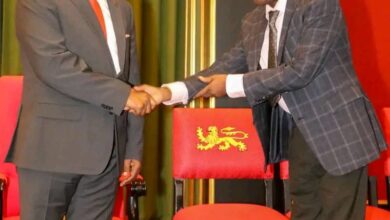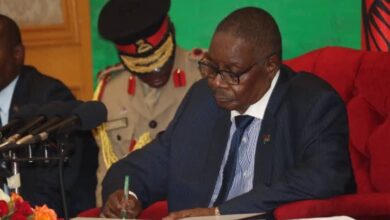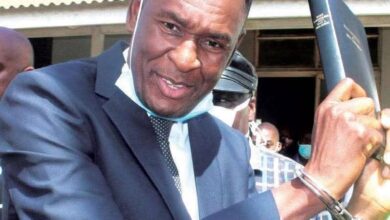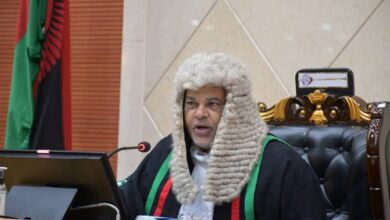Columns
Remembering Pope Francis: The life and legacy of a revolutionary Pontiff
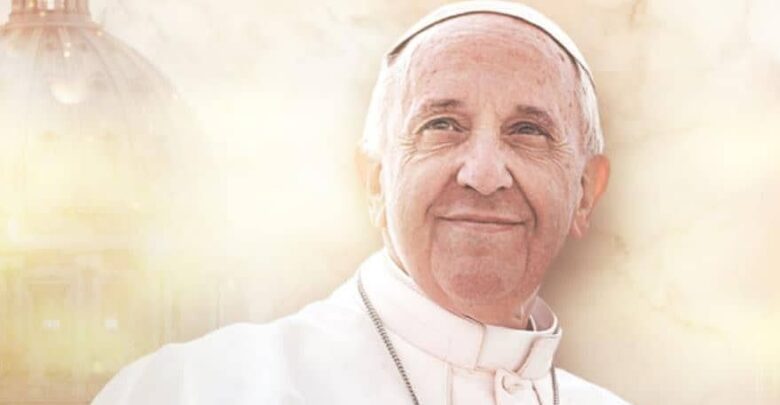
By Burnett Munthali
Pope Francis, the spiritual leader of more than a billion Catholics worldwide, passed away at the age of 87.
His death marks the end of a transformative era in the Roman Catholic Church, characterized by reform, compassion, and a renewed focus on humility and service.
Born Jorge Mario Bergoglio on December 17, 1936, in Buenos Aires, Argentina, he became the first pope from Latin America, the first Jesuit pope, and the first pope to take the name Francis.
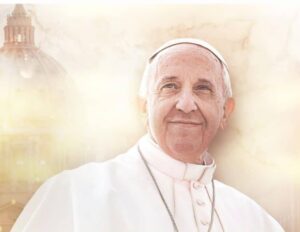
His choice of name honored Saint Francis of Assisi, known for his life of poverty and devotion to peace, which perfectly reflected the mission Pope Francis would undertake throughout his papacy.
Before becoming pope, Bergoglio served as Archbishop of Buenos Aires and was known for his simple lifestyle, often taking public transport and living in a modest apartment rather than the archbishop’s palace.
His pastoral work was centered on serving the poor, advocating for social justice, and fostering close connections with ordinary people.
On March 13, 2013, he was elected as the 266th pope of the Catholic Church following the resignation of Pope Benedict XVI.
This historic moment marked the beginning of a papacy that would break many of the traditions and expectations surrounding the office.
From the very beginning, Pope Francis chose to live in the Vatican guesthouse instead of the Apostolic Palace and rejected the extravagant papal attire.
He quickly became known for his humility, warmth, and informal style, winning the hearts of Catholics and non-Catholics alike.
Pope Francis placed a strong emphasis on mercy, compassion, and inclusivity.
He famously said, “Who am I to judge?” in reference to gay Catholics, signaling a new tone of openness in the Church’s approach to LGBTQ+ issues.
He encouraged a Church that was welcoming, not judgmental, and called for the faithful to focus more on love and less on dogma.
Under his leadership, the Church made significant strides in addressing longstanding issues.
He confronted the global crisis of sexual abuse within the clergy head-on, implementing reforms and meeting with survivors to offer apologies and seek reconciliation.
Although some critics argued that the reforms did not go far enough, many viewed his willingness to face these issues as a major step forward.
Pope Francis was also an environmental advocate, authoring the landmark encyclical Laudato Si’, which called for urgent action on climate change and care for our common home.
He called on world leaders to protect the environment and the most vulnerable populations affected by climate change.
He advocated for peace and diplomacy, often serving as a mediator in global conflicts and encouraging dialogue between faiths.
In his travels, he visited war-torn countries, refugee camps, and impoverished communities, always bringing a message of hope, solidarity, and compassion.
Despite facing health challenges in his later years, including mobility issues and lung complications, Pope Francis continued to serve with remarkable energy and dedication.
He remained a vocal critic of global inequality, economic injustice, and corruption, urging nations to uphold human dignity.
His papacy was not without controversy.
His progressive views sometimes clashed with conservative elements within the Church.
Still, he remained steadfast in his mission to bring the Church closer to the people.
He prioritized the marginalized, including migrants, prisoners, and the poor, and insisted that Church leaders do the same.
He emphasized the importance of listening, dialogue, and synodality, encouraging local churches to have more voice in decision-making.
His vision for the Church was one that walked alongside humanity, especially those who suffer.
As news of his passing spread, tributes poured in from around the world.
Leaders of all faiths, international organizations, and millions of faithful expressed sorrow at the loss of a man they saw as a symbol of integrity and humanity.
The Vatican will now begin preparations for his funeral, which is expected to be attended by global dignitaries and countless mourners.
As the Church prepares to choose his successor, many are reflecting on the indelible mark he left behind.
Pope Francis’s legacy is one of courage, compassion, and reform.
He dared to reimagine the role of the papacy, making it less about power and more about service.
He showed the world that leadership is about love, humility, and standing up for what is right.
Though he has departed, his teachings and example will continue to inspire generations to come.
May his soul rest in peace, and may the Church he loved so deeply continue the work he so passionately began.
—
Let me know if you’d like a version in a specific format, or if you’d like to add photos, quotes, or a timeline of his life.



